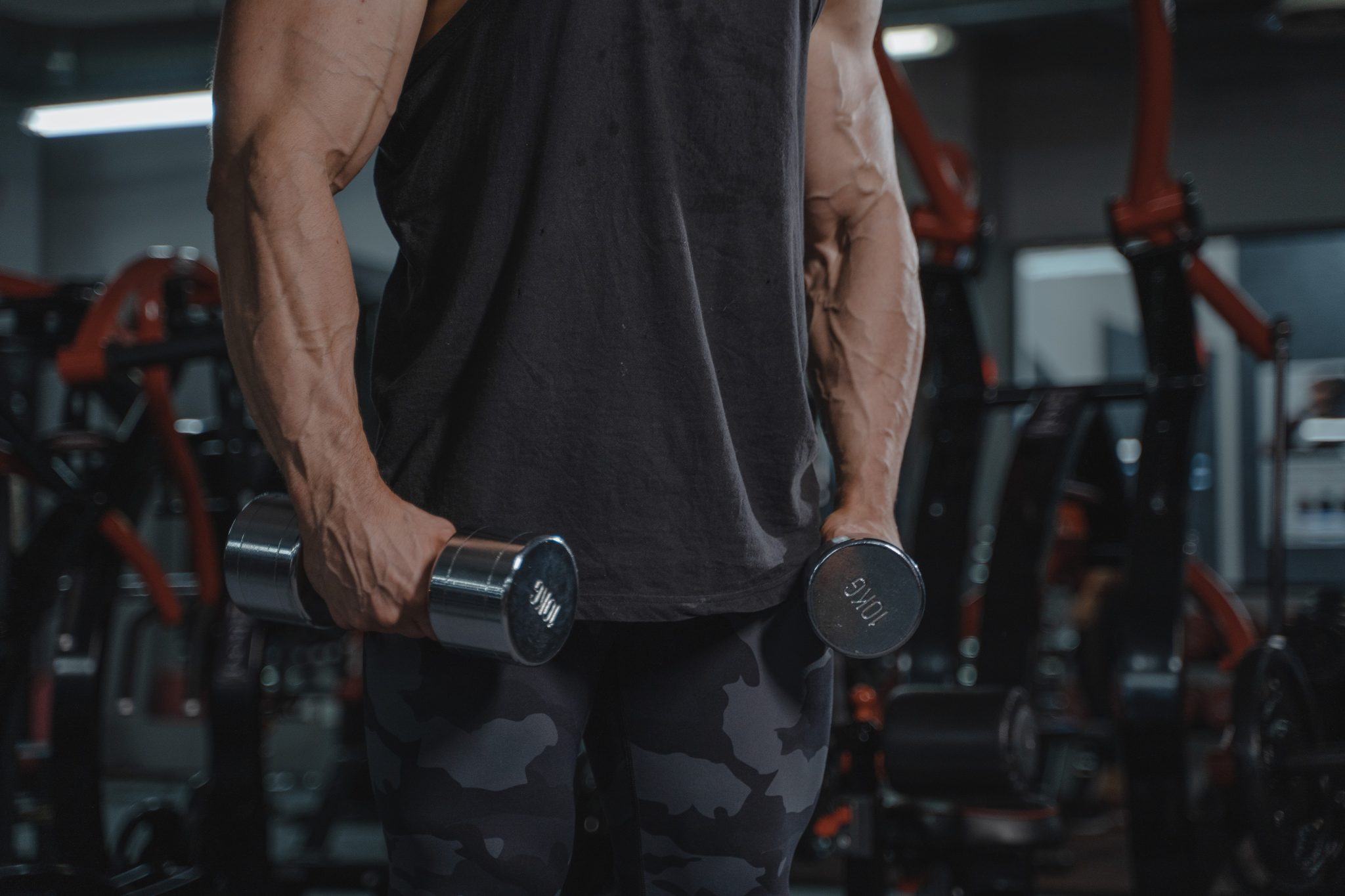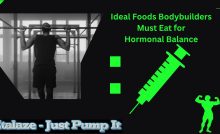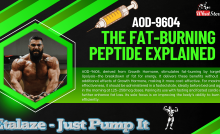Protein Powder Supplement Comparison – Which Type To Choose?


Introduction
In this article, we will talk about protein powders. You already know that you should increase your protein intake and train hard to build more muscles. In the day, choosing used to be easy, as we only had whey. However, there are so many different kinds of protein powders today it is becoming increasingly challenging to decide which one to take. This article will give you essential information about different protein types, which will help you with decision-making. Let's go!
First Things First: Protein Powder Purity
We will get into different protein sources later, but let's first tackle one thing they all have in common: powder purity. Based on the amount of pure protein compared to everything else in the powder, we have protein concentrates, isolates, and hydrolysates.
Concentrate
Back in the day, there was a massive difference between concentrates and isolates, but you can expect the best concentrates to have more than 80% of protein, with the rest coming from carbs and fat. Considering the price, concentrates are the best option for most people who want to add some muscle mass and don't mind the extra calories from other sources.
Isolate
Protein concentrate that goes through more filtering becomes protein isolate. Every good protein isolate has 90% protein or more, with the best ones reaching 95%. Protein isolates are the best option for people looking to cut or those who are carefully monitoring their diet, for example, those following a keto regimen. They are more expensive than concentrates, though.
Hydrolysates
Hydrolysates are isolates that are processed with enzymes, which improves their absorption, which means they end up in your muscles more quickly. They are the purest protein form but also the most expensive.
Blends
We also have blends, which mix proteins from different sources. However, you need to be careful with these, as they are often the tools companies use to trick consumers. So, for example, if you buy a concentrate and isolate blend, that is a concentrate. And if you purchase blends of different protein sources, read the label carefully. Companies will usually use the lowest quality protein to fill up the content. And whenever you see "proprietary blend" on a label, it is probably best to avoid the supplement, as you never know exactly what's in there.
Must read:: Whey Protein Explained: Isolate, Concentrate and Hydrolysate
Animal Protein Powders
The Reign King: Whey Protein Powder
Whey always was, and still is the best protein powder. Whey is derived from milk in the process of making cheese. The liquid is later processed, and we get whey protein powder. What makes whey the best protein powder supplement is its composition as it is a complete protein source containing all nine amino acids. Furthermore, it is highly bioavailable, which means our body can use most of it, which is a problem with some other protein sources. Whey protein is also highly satiating, which means it will keep you full for longer, helping you stay on your diet plan if you drink protein instead of snacking. Another benefit of whey is that it is one of the most widely spread protein sources, with many manufacturers making quality whey supplements. Whey is nothing new and is one of the most budget-friendly protein powder options.
Casein: Whey's Closest Cousin
So if whey is the king, casein is the king's brother, as it is also derived from milk. But there is one major difference: casein is a "slow" protein. What that means is that casein protein doesn't get absorbed immediately. Instead, the amino acids are released into the bloodstream over a prolonged period, giving your muscles a more steady protein supply. Lifters like to use casein before bed, in order to "stay anabolic" during sleep. That's why it is a good idea to take casein alongside whey. But, if you compare the two directly, whey is a better option, so if you can only take one, pick whey, mainly because they are both milk derivates.
Look No Further, Unless...
So whey is the best protein powder option, and casein is its perfect partner. A premium fast+slow protein, like a one-two punch, right? Well, not for everyone. Both whey and casein are proteins derived from milk, which is a problem for some people.
First, milk is an animal product, which makes these two proteins a big no-no for vegans. The same goes for the egg, beef, or any other protein powder that comes from animal sources. Second, people who are lactose-intolerant might have issues digesting proteins that come from milk. Even though you can try with isolates and hydrolysates which should not contain any lactose, you might find whey/casein problematic to digest. If that is the case, but you still want to up your protein intake, you will have to turn to plant protein sources.
Must Read:: Do Bodybuilding Supplements Really Work?
Plant Protein Powders
Hemp Protein
Hemp is an easy to absorb plant protein which is rich in fiber, but also healthy, unsaturated fats. What's more, those fats have an excellent omega-6 to omega-3 ratio, which is incredibly healthy. Because this protein is rich in fiber, it positively influences the digestive tract and sugar levels, helping you stay full for longer. But, the hemp protein has one major issue, as it is lacking one of the essential amino acids, lysine. Therefore, you either opt for a protein blend or eat lysine-rich foods alongside your hemp powder, such as avocados or tomatoes.
Pea Protein
Pea protein powder is rich in BCAAs, amino acids popular among bodybuilders. It also has very high protein content, and our body is able to utilize it to a great extent. Also, pea protein is also a good source of fiber, which means it is terrific for digestion. And it is hypoallergenic, which means it is safe for most people. Similarly to hemp protein, the pea protein is deficient in one essential amino acid, this time methionine. To correct this, you can include some methionine-rich foods such as Brazil nuts, or even rice protein powder.
Brown Rice Protein
Similarly to hemp, brown rice protein doesn't contain much lysine, so you need to combine it with other foods or protein sources. But, it has many muscle building and health benefits, giving you a reason to choose it as your go-to plant protein source. Rice is a good option because it is well-tolerated by many people, as it is hypoalergenic. Because pea protein is hypoallergenic too and has lycine, it is ideal to take rice+pea protein, if you want to have a "perfect" plant protein blend.
One To Avoid: Soy Protein Powder
When you look at the soy protein contents, it seems like a vegan gym bro's best friend, especially considering the price tag, as it is one of the most budget-friendly protein sources. When you compare it to other plant proteins that usually lack some amino acids, soy protein is complete, giving you all that your body needs. While it doesn't beat whey, it is a better protein source than casein. But, there are some significant issues with soy.
First, all soy available in the Western world is GMO. Yes, all proteins are not exactly whole foods, but knowing that the one you drink is 100%, GMO might be an issue for some. However, most meatheads reading WhatSteroids site don't care too much about staying natural, they only care about gains, so who cares about GMO if soy powder is protein-packed, complete, and incredibly cheap, right? Wrong.
The major issue with soy is that it contains phytoestrogens. When ingested, these compounds act like estrogen in our body and can negatively affect testosterone levels. For most meatheads, this is a huge red light. Raising estrogen levels can cause enlarged breasts, and we all know that steroid users often have issues with gynecomastia, even without consuming soy.
Conclusion
That was the most essential information about different kinds of protein powders you need to know. To summarize:
- If you want to gain weight and are not competing, protein concentrate is your best option, considering the price.
- If you are looking to cut, go for isolates, as they contain almost no carbs and fats.
- Also, if you are an athlete, competing, or have a big budget, go for hydrolyzates, as they are most easily digestible.
- Be cautious about blends, as they are often extremely low-quality, read the labels.
Sources:
- Not vegan? Then, whey is your number one choice, ideally combined with casein.
- Vegan, or lactose-intolerant? Your best option is probably pea protein but ideally combined with brown rice protein, as those two give you all the necessary amino acids.
- Avoid soy protein as it contains phytoestrogenes, which can mess with your hormone levels.
Of course, protein that you eat from real foods matters too, and you should always try to maximize it, using supplements to SUPPLEMENT your nutrition, not to replace it. And care about micronutrients too, like fiber, vitamins, minerals, as they often get overlooked by gym bros, who only care about protein/fat/carb ratio. That's it guys, read our other articles if you want to learn about each protein kind in deatail or any additional gym-related information.
Stay strong!
Recent Posts
Optimizing Strength and Recovery: A Guide to Bodybuilding by Body Type
Every body tells a different story—and in bodybuilding, honoring that story is the key to…
Fitness Lessons from A Navy Seal’s Training Routine
Navy SEAL training is designed to forge elite tactical athletes. It’s not your average gym…
Exploring BPC-157 Healing Properties
BPC-157 is a synthetic peptide derived from a protein found in the stomach, known for…
The Ultimate Guide to Foods That Support Hormonal Balance for Bodybuilders
Hormonal balance is crucial for bodybuilders aiming to maximize muscle growth, recovery, and overall health.…
Steroid Shops Review
osgear.se Reviews ⭐⭐⭐⭐⭐ Score: 97.78% Osgear has consistently maintained a 99% customer satisfaction rate across key…
ACE-031: A Powerful Myostatin Inhibitor
ACE-031 is a synthetic peptide designed to block myostatin, a natural regulator of muscle growth.…


